从孩子玩游戏的习惯总结5大设计要求
作者:John Cheese
很多时候当你在观看你的孩子们玩游戏时,总会抑制不住冲动要手把手教他们怎么做。很长时间以来我一直都认为是这些孩子们过度沉迷于游戏,即使是游戏中的死亡也不会影响这种心情。
当我深入分析他们的这种沉迷行为时,我逐渐意识到这其实不是这些孩子们的错;而应该说是游戏的错。所以当我们仔细观看孩子们如何玩游戏时,他们便会告诉你自己关于游戏的一切想法以及那些不能忍受的环节,而你便可以将这些反馈好好地应用于今后的游戏中。
1.他们不愿容忍失败,所以现代游戏应该尽量让这些玩家获胜。
让我们正视这一问题。电子游戏世界对“死亡”的定义发生了变化。我记得当我们还在使用保存点时,如果玩家在几个小时内忘记使用这些点,他们便会死亡并且也将抹去自己花了很长时间所完成的任务。而在更早的MMO中,死亡则意味着玩家丢失经验值或降级。
追溯到更早之前的时代,即NES游戏甚至未拥有任何保存功能。也就意味着玩家一旦死亡他就必须回到最初的菜单屏幕而从头开始游戏。甚至还有玩家在《超级马里奥》的第一个关卡中徘徊了1万多次。
掌握了这一点(除了在MMO游戏中),我就开始记住要随时暂停游戏。如果我想要去上厕所,那就暂停游戏;如果我想要喝瓶可乐,那就暂停游戏……因为如果玩家不能够暂停游戏,他们在做完自己的事后回到游戏将只能面临角色死亡的下场,此时他们便不得不重新花上几个小时再次开始之前的挑战。
在大多数现代游戏中,死亡不再是一件让人吐槽的事。如果你的角色在《辐射:新维加斯》中死去了,你便可以从最后一次自动保存的点上(游戏邦注:每个几分钟便会保存1次)再次开始游戏。这些点包括每次你进入或走出一栋建筑,每次你来到一个新的区域或者每次你在睡觉时等。如此,当我的小孩在冲向放射性冲压机时他便无需担忧是否会因此死亡了。他们还会中途放下控制器跑去游泳游上一个小时——即使现在他们的角色仍然处于游戏进行中,恐慌地盯着眼前未知的领域。
为什么他们会这么做?
我将再次以《辐射:新维加斯》为例。当玩家走出第一个城镇时他会看到一个布满各种标志的街道,标志上写着“如果你通过了这些标志,你就会丧命。请不要认为这是假信号。”而如果你忽视了这些标志仍继续前行,你很快便会发现自己的想法是错误的。
我的孩子可以不带任何武器甚至一点都不了解游戏而在其中驾车疾驰……但这又有何不可呢?唯一能够让我安全的就是避免重蹈覆辙,不要再次经历之前的死亡过程。我已经习惯了这种虚拟死亡的理念,但是作为游戏玩家,我还是不太乐意接受死亡的结果。
这意味着什么?
在这里并不存在任何失败的代价。当玩家死去后,他便能够从停止之处再次开始游戏(并也获得了痊愈)。比起早前的游戏,这种设置真的发生了巨大的改变,因为在《超级马里奥》中,如果玩家在最终与boss的战斗中错过了某一步便需要从头开始整个游戏。可以说对于现代玩家而言,没有了游戏中的保存系统简直是不能想象的噩梦。
如今,我并不是说我们必须想尽办法回到之前严格的游戏玩法中。申述着“过去的时代”有多少更加复杂的游戏是一种无理取闹的表现,你要知道它们也只是一些电子游戏罢了。不过不管怎样,对于那些伴随着老派游戏长大的人们来说,他们肯定都在那些游戏中体验到许多不一样的感受,如知道自己只剩最后一条命,只剩最后一个关卡,或者知道死亡就意味着自己之前所完成的任务都是白费时的高度紧张感。
所以在早前玩游戏时我们需要面临极高的风险,如果获得了胜利便会犹如赢得了“美国超级杯”一样激动。而现在的游戏设计则是一开始便提供给玩家一种虚拟的“上帝模式”,这是我不能理解的设置。不过当代的游戏玩家肯定不会同意我的想法,他们会认为游戏的糟糕理念已经在游戏测试中得到了解决,呈现在他们面前的游戏已经如“长篇互动电影”理念那般,能够从A点顺利发展到B点,并且预设的结果便是玩家不需要体验任何苦难便能够最终赢得游戏。
2.他们不能忍受“刷任务”
“刷任务”也就是玩家在游戏中必须执行的“工作”。当玩家在面对一些比自己强大的boss或者自己未拥有合适的武器时,他们就必须想办法去壮大自己或者获得武器,而这就需要他们重复回到之前的关卡中(游戏邦注:或者在RPG游戏中不断徘徊而杀死更多随机的动物)。
对于我们这些经历了90年代像《最终幻想》这类掌机游戏的玩家来说,我们总是认为游戏中免不了:1)提供各种各样的阅读内容;2)创造出一些如梦魇般的迷笛音效;3)通过与一些强于最终boss的随机怪物对抗而获得升级(也就是刷任务)。
我并不认为没人“喜欢”这种设置。从某种程度上看来,我们知道这么做只是为了让角色变得更加强大从而能够进入到下一个关卡中。我们也只是在遵循着游戏的做法。
而如果换成我的孩子们遭遇刷任务机制时,他们便会认为游戏出错了或者自己错过了某些内容。我曾经注意到他们在《辐射:新维加斯》中花了2个小时去对付Deathclaw,因为他们没有想过自己应该返回原处。所以问题究竟出在哪里呢?
为什么他们会这么做?
他们当然知道可以这么做。就像在大多数游戏中,玩家只要尝试着攻击boss三次它便会死去。除此之外,有些游戏还根据玩家当前等级调整了敌人的级别。在最新的任天堂游戏以及《黑色洛城》中,玩家便能够在失败多次后选择略过那一关卡。
这意味着什么?
这时候我便开始思考刷任务机制是否只是填补游戏内容的一种手段。当我还是孩子的时候,游戏会通过让玩家反复进行同样的内容而延长游戏时间。通过在适当的点设置刷任务,开发者便可以轻松地将20个小时的游戏延长至40个小时。并且这时候他们便可以以此进行宣传:“《最终幻想III》拥有长达40个小时的游戏玩法!”
现在,基于不同游戏类型我们所面对的游戏任务一般是在5至10个小时。而如果你想要玩一些较长的游戏,你便可以选择多人游戏,在线游戏,或者沙盒游戏等等,你甚至可以花6个月的时间在《侠盗猎车手》中尝试着从直升飞机中跳下并降落在一个泳池里。
但是不管怎么说,现在我的孩子们能够做一些我们在这个年龄所不能尝试的内容——他们拥有各种各样的游戏选择。如果他们觉得自己现在玩的游戏太过胡扯,他们大可放下控制器去玩找别的乐趣。也就是如果他们不想再面对游戏中的杀戮,循环和反复射击,只要放下游戏去吃个60美元的冰淇淋便可。
3.他们不想在游戏中看到太多文本内容
甚至在充斥着各种过场动画和专业电子游戏配音员的时代里,电子游戏中仍然存在大量需要玩家阅读的内容。就像在RPG中,任务授予者将通过几个段落的背景描述去传达他们的指令。还有一些“单纯娱乐”的游戏,如《丧尸围城》甚至让玩家前去拯救的对象向他们派送指令。而最近的一些游戏,如《银河战士系列》和《心灵杀手》更是将文本文件藏在一些神秘领域并要求玩家找到它们并进行阅读。
我的孩子们便不愿意忍受这些文本内容。
遇到这些文本他们便会快速按压“跳过”按钮以避免看到这些乏味的内容——即使他们需要这些角色告诉自己会找遇到哪些威胁,应该破坏或收集什么内容等。如果你在任何一款《辐射》系列游戏中略过所有文本内容,你便可能不清楚自己接下来该做些什么。不过对于这些孩子们来说这却不重要,因为他们更希望凭借自己的力量在游戏中摸索而最终找到目标。
为什么他们会这么做?
我的意思并不是说“这些下一代年轻人讨厌阅读!”因为这种情况不只出现于我的孩子们身上。我的两个儿子能够在休闲的时候阅读一些童话故事,但是这并不意味着他们同样也喜欢《辐射》游戏中的文本内容,或者其它伴随着非玩家角色而出现于屏幕上方的文字。他们只希望游戏归游戏,书籍归书籍。两者的结合对他们来说一点意义都没有。
我还是能够忍受游戏中的文本内容,毕竟我们已经经历了早期游戏通过文本阐述故事的年代。在1993年,我们所玩的游戏中根本不会出现一个带着Patrick Stewart(游戏邦注:英国著名演员)声音的国王。但是现在我的孩子们却认为文本是一种可笑且古老的内容。他们希望游戏完全如《现代战争》那样,即游戏能够在战斗期间明确告知他们接下来的目标。
与其说游戏中展现的是完整的历史内容,更应该说只是在体现“乐趣”。
这意味着什么?
当《魔兽世界》刚出现时,玩家必须阅读大量的文本内容才能开始执行任务。他们需要与任务授予者交谈,并关注于他所陈述的故事以此明确自己该怎么做。任务授予者所说的话也就是“杀掉20个Disembodied Asses,我便会给予你奖励。”而如果你没认真听他说这些话,你有可能浪费1个多小时在杀一些错误的对象,如“Embodied Asses”。
而经过6年多的更新和发展,游戏设置也发生了变化,即现在只要玩家接受了任务,游戏便会在玩家地图上做出一个标记告诉他们该怎么做,该去哪里,该杀哪些敌人,该杀死多少敌人,或者该收集或寻找什么等等。如此游戏中关于NPC角色极其背景故事将不复存在,也就是游戏将从大型多人在线角色扮演游戏转变成大型网络游戏。
换句话说,我并不认为“讨厌阅读”的对象只存在于那些不安分的年轻孩童。随着他们的长大,他们讨厌阅读的想法也不会因此而改变,所以对于游戏的看法亦是如此。如果游戏还是强迫玩家不得不中途停下来阅读文本内容,他们便会认为这是游戏设计中的缺陷。
作为一个依靠写作谋生的人,我还是希望未来的游戏能够知识充满各种角色和情节(而不是文本)——不过我觉得下一代的游戏玩家也将会厌恶这些内容吧。但是至少是现在,使用生动的过场动画去传达故事情节仍然是一种好方法。
4.他们会忽略过场动画
几个月前我的小儿子完成了《侠盗猎车手IV》中的一个高潮挑战,并导致主角的表弟兼最好朋友Roman被杀。Roman并不是一个次要角色,可以说他是游戏中一个非常重要的角色,整个游戏故事将围绕着他展开。所有的早期任务也都是围绕着他和他的事情而发展。但是当Roman死后,我的儿子却问了我一个问题:“他是谁?”
如此看来他从游戏的一开始便跳过大部分过场动画。
为什么他们会这么做?
我是过场动画的超级粉丝。我还记得早前的掌机并未有足够的能力去支持这些过场动画。而当技术发展到一定程度,即我们开始能够在掌机上看到全动态的电影场景时,我简直欣喜若狂。这些过场动画真的比实际的游戏玩法好上100倍,我认为它们是游戏进展所带给玩家的奖励。甚至我会为了观看最终的过场动画而坚持玩完游戏。
但是在我的孩子们所出生的这个年代,过场动画的新鲜感已淡却。不过我仍然很喜欢过场动画并将其当成是一种游戏奖励,因为我见证了它在以下两图的转变过程:
但是因为现在的孩子们未经历过任天堂时代,所以不可能拿过场动画与之前进行比较。
他们只会把过场动画与电影做比较。
不论游戏中的过场动画再华丽,也比不上像《指环王》这样的大场面。相比起来,游戏中的过场动画不仅在表演方面显得劣质,动画过度戏剧化,甚至玩家可以不用观看这些动画以明确游戏的进展,因为这些过场动画只是作为背景而存在,它们的功能只是用于娱乐像我这样喜欢华丽图像的玩家。而像我儿子这个年龄的玩家便会对其嗤之以鼻。他们离图像备受欢迎的那个年代实在太远了。
对于他们来说,过场动画只是影响游戏发展以及他们疯狂屠杀行为的障碍。他们甚至不会关心Niko Bellic(游戏邦注:《侠盗猎车手》中的角色)为何会为一个毒枭卖命。对于他们来说所有的任务只是游戏要求他们这么做,并且只要完成了这些任务便能够赢得游戏。而任何迫使他们暂停行动的内容都是没有意义的垃圾。
这意味着什么?
我开始认为他们是对的。虽然我很喜欢过场动画,但是老实说:它们不可能汇聚像好莱坞那般豪华的演员阵容或脚本——这是不现实的。因为开发公司已经将大量预算投入到游戏开发的其它方面,另外他们邀请一些廉价的演员或者不需要演员也有办法让游戏热销。我也因此质疑我们是否还有必要创造出这些动画。虽然这是一种创造性的表现,能够呈现出技术的飞跃发展(特别是存储媒体已经足以支持这些动画),但是从此时来看,它们只是在践踏游戏的乐趣。
我们完全可以将一则有趣的故事贯穿于整个游戏中(游戏邦注:如《传送门》,《生化奇兵》以及《现代战争》那样)。如果玩家花更多时间去观看动画,他们便只剩下较少的时间用于玩游戏。如果是这样我便不会愿意花60美元去购买一款会让我的孩子们感到厌烦的游戏。
5.不喜欢它?那就破坏它。
这个时代的掌机游戏已经不再盛行作弊码了(成就系统阻止了Game Shark等装置),除非你利用了游戏中的故障或者游戏自己暴露出问题(就像在《侠盗猎车手》中的电话号码能够衍生出汽车和生命值等东西)。虽然这么做并不正面,但是我却真心需要它们。
有可能我的孩子们也是受到我的影响吧,不过如果我玩的是基于故事的游戏,我便只会想知道接下来会发生什么,而整体的“游戏”内容只能推动我进一步融入于游戏世界中而已。我当然不希望连续被同一群野狗杀掉10次,我也不想因为没有注意到敌人投射的手榴弹而重新玩整个关卡。
在过去我会启动“God Mode”而绕开这些内容。如果在像《生化危机》这类老派游戏中,我将启动无限弹药作弊码并疯狂进行扫射。
但是不久前的一天,当我听到小儿子在咯咯笑时我走近一看,发现他正在玩《侠盗猎车手:圣安地列斯》,并且他将游戏中的所有汽车都变成粉红色,将所有非玩家角色设置成暴乱模式。建筑物和房屋在火中燃烧,汽车接连发生爆炸,而人们更是彼此扫射着。甚至所有的角色都被打扮成小丑。
我想这就是我的孩子所使用的游戏作弊手段吧。
为什么他们会这么做?
我们要知道,他们并不是为了游戏故事而玩游戏。他们甚至不理解为何游戏需要故事。所以当他们在游戏中受困时他们不会感到焦虑不安,或者迫切地希望知道游戏的最终发展结果。他们只会将游戏当成是一个坏掉的玩具。所以他们会分解游戏并将其重新组合成其它内容。
这意味着什么?
这是掌机游戏需要避免的少数情况。大多数非沙盒游戏只会引导着玩家穿越一个特殊的走廊而走向基于脚本的特殊事件(任何随机事件都受到了严格的限制)。甚至像《子弹风暴》这类型的游戏也本应该提供给玩家大量的创造性随机事件,如关于玩家如何杀死坏人,但是事实上游戏却一步一步地引导着玩家前行,并将其诱导至预先设定好的事件中(如果你事先知道刺穿敌人能够获得一个特别的成就,你便不会觉得这么做是有趣的)。
我作弊时仍然会遵从一定的游戏规则——虽然我获得了额外的子弹,但我仍想实现游戏目标并且也遵循了游戏的要求。虽然我的角色变得更加强大 ,但是游戏却仍然保持原样。
而我的孩子们不觉得遵守这些规则有何意义,他们不想改变自己,于是就改变游戏世界。因为这就是他们这个时代玩家的游戏原则。
游戏邦注:原文发表于2011年7月15日,所涉事件和数据均以当时为准。(本文为游戏邦/gamerboom.com编译,拒绝任何不保留版权的转载,如需转载请联系:游戏邦)
5 Crucial Lessons Learned by Watching Kids Play Video Games
By: John Cheese July 15, 2011
Watching my kids play video games is like watching a virgin fumble around with his first prostitute. You just want to put down the camera, strap on your dildo hat and say, “No, look, you do it like this.” For a long time, I thought that they just sucked at gaming, and grounding them for in-game deaths obviously wasn’t working.
But the more I analyze their suck, the more I’m realizing that it’s not their fault. It’s the games themselves. And watching how the kids play — and what they refuse to put up with — will tell you everything you need to know about the future of gaming.
#5.They Don’t Tolerate Losing, So Modern Games Just Let Them Win
Let’s face it, in the video game universe, death isn’t what it used to be. I remember when save points were a thing, forgetting to use them for a couple of hours meant your death would erase everything you just spent half a work day accomplishing. In older MMOs, dying meant a loss of experience points or levels.
Go back a few years before that, and you find NES games that didn’t even have the ability to save. You die, you’re back at the menu screen. There are people in this world who have played the first level of Super Mario Bros literally 10,000 times.
Because of this (MMOs aside), I learned to pause my game frequently. If I had to take a piss, it got paused. Need a new Pepsi — paused. Need 10 minutes to stalk the neighbor lady — paused. Because if you didn’t, you were absolutely guaranteed to come back to a corpse, and you’d spend the next hour trying to come up with a good story to explain the Nintendo-shaped hole in your bedroom wall.
In almost every modern game, death isn’t shit. If you die in Fallout: New Vegas, you just pick up at your last auto-save, which happens every couple of minutes. Every time you enter or exit a building. Every new area. Every time you sleep. Because of that, death is not even something my kids take into consideration when running face-first into a herd of Radioactive Cock-Punching Punchcocks. I’ve seen them put down the controller and go swimming for an hour while their character stands, staring dumbfounded into the horizon.
Why Do They Do It?
I’ll come back to Fallout: New Vegas again because it has a perfect example. Just outside of the very first town, there is a road adorned with signs that basically say, “If you go past these signs, you will fucking die. No, this isn’t a fake warning.” And of course, if you just assume that their “not a fake warning” line is actually a fake warning, you find out very quickly that you were in error.
My kids barrel-ass in without weapons or knowledge of the game whatsoever … because why not? The only thing keeping me on the safe side of those signs is my memory of what video game death used to be like. I’ve been conditioned to respect the idea of virtual death, and the thought of falling to it is beyond what I can accept as a player.
What Does it Mean?
There is no price for failure. When you die, you’re put right back where you left off, fully healed and ready to try again. That’s a radical fucking change considering if you missed a single jump during the final boss battle of Super Mario Bros., you may have to start the entire game from scratch. It’d be like if a game today was set to delete your save if you failed at the end. It’s unthinkable.
Now, I’m not saying we should go back to such a drastic style of play by any means. And it sounds ridiculous to groan on about how much harder games were “back in my day” because, you know, they’re just fucking video games. But still … those of you who grew up with the old-school games, have you felt anything like the horrible tension you felt when you knew that you were on that last life, on that last level and that dying meant everything you had accomplished would be wiped out?
The stakes were so high, and the feeling you got from winning was like you’d won the Super Bowl. Now, when I’m given a virtual God Mode from the very beginning as part of the game design, it just feels … well, kind of wrong. But the new generation of gamers disagree with me, and the entire concept of getting stuck in a game is treated like a bug that gets squashed during play testing. So games have moved on to the “long interactive movie” concept, a progression from A to B where it’s a foregone conclusion that you’re going to win, and without any kind of real hardship along the way.
#4.They Have No Tolerance for “Grinding”
“Grinding,” if you’ve never heard the term, is the “work” part of a game. You reach some boss you’re clearly not strong enough to beat, or you don’t have the right weapons. Then you figure out that to get strong enough or to earn the weapons, you need to go repeat earlier levels (or in an RPG, wander around and kill a bunch of random animals).
OK, only 491 more rabbits, and I can move up to angry plants.
For somebody like me who got into RPGs with the ’90s era Final Fantasy console games, you knew what you were in for: 1) doing a lot of reading, 2) adding a midi soundtrack to your nightmares and 3) grinding your ass off to out-level a bullshit random monster that was harder than the motherfucking end-boss.
No one “enjoyed” it, I don’t think. On some level, we knew we were putting the storyline on hold in favor of making our characters powerful enough to see the next cut scene (“What’s that? We need this amulet to destroy the dragon that is about to wipe out the kingdom? OK, wait while I kill 300 armadillos.”). But it was what the game told us to do, so we did it. You didn’t question that shit.
When my kids encounter a boss that requires grinding, they think the game is broken, or that they’re just missing something. I’ve seen them spend up to two hours trying to kill a Deathclaw in Fallout: New Vegas because they don’t consider the idea that they should come back when they’re more powerful. It’s there, so we should be able to kill it. What’s the problem?
“There it is! Quick, PUNCH IT!”
Why Do They Do It?
It’s all they know. Once more, most games have come around to their way of doing it. Boss encounters in most games are designed to be beaten after about three tries. In some games, the enemies’ level is adjusted to the players’ level. In newer Nintendo games and in L.A. Noire, they give you the option to just skip a level if you fail too many times.
What Does it Mean?
I’m starting to think it means that the very idea of grinding was a bullshit trick to begin with in order to pad a game. When I was a kid, games were set up to make you grind the same tasks over and over because it would stretch out the play time. With the right amount of grinding spots at just the right intervals, a developer could easily — and often did — turn a 20-hour game into a 40-hour game. And that was a huge selling point to say, “Final Fantasy III has 40 hours of gameplay!”
Yep, and 30 of those hours were this.
Now, it’s normal to expect the quest to be five to 10 hours long depending on the genre. If you want a long game, get a multiplayer game and go online. Congratulations, you have a game that never ends. Or, you get a sandbox game and spend the next six months in GTA trying to jump out of a helicopter and land in a swimming pool.
But it comes down to the fact that my kids can do what I never could at their age — they recognize when a game is full of shit. They can do that because they have a lot of other titles to compare it to. And if what they’re currently playing is trying to bullshit them, they simply put down the controller and go play outside … and that means when Kill, Loot, Repeat 2 hits the shelves, they’re going to say, “Fuck that” and buy $60 worth of ice cream instead.
They have no problem with repetition here.
#3.If They Want to Read, They’ll Buy a Fucking Book
Even in the age of cut scenes and professional video game voice actors (though most video game voices appear to be done by one guy), there is still a ton of reading to be done in video games. In RPGs, the quest-givers will still roll out their instructions across several paragraphs of backstory. Even supposedly “mindless fun” games like Dead Rising make you read the instructions given to you by the people you’re trying to rescue. Then you have titles like the recent Metroid games and Alan Wake where collecting and reading text files fills in some mystery or other.
All that text to the left boils down to “talk to the guy behind me.” That’s not a joke.
And my kids will not tolerate that shit.
They will hammer the “skip” button as fast as they can to get to the part where they’re doing the fun stuff. Even if they needed the character to tell them what exactly they were supposed to be killing or destroying or collecting. If you just blast through the text in any Fallout game, you will have no goddamned idea what you’re supposed to be doing. It doesn’t matter; to them, it’s still not worth it. They’d rather just try to stumble across the objective on their own.
Why Do They Do It?
Just to be clear, my point isn’t that “this next generation hates to read!” Because that’s not the case with my kids at all. Both of my boys could fill Prince’s sequined thong closet with their recreational reading. But even if they were dyslexic, the Fallout example wouldn’t make much sense, as often those NPCs actually do speak their lines along with the on-screen text. It has more to do with the fact that they want their games to be games, and their books to be books. Combining the two doesn’t really make sense to them. And maybe they’re right.
“We must hurry … but first, let me tell you about his origin and history.”
I’m patient with game text because, well, I remember an era when text was all you had to tell the game’s story. In 1993, I didn’t have games where the king would walk up to you and start talking in Patrick Stewart’s voice. But my kids see the text as a ridiculous, archaic intrusion. They prefer games built more like Modern Warfare, where the next objective is shouted at you mid-battle.
“Ramirez! I’ll wait here, you go re-capture the White House.”
It’s less “here’s the entire history of the opposing faction” and more “here’s a gun — go.”
What Does it Mean?
You can already see games coming around. When World of Warcraft first came out, doing quests meant plowing through a metric fuckload of text. You talked to a quest-giver and actually had to pay attention to their sob story to figure out where to go. The guy’s speech would boil down to “kill 20 Disembodied Asses and I’ll give you a prize,” but if you didn’t pay close attention to his spiel, you could find yourself wasting an hour, killing the wrong thing. Like Embodied Asses or something.
Six years and countless updates later, it’s now set up so that as soon as you accept a quest, they put a marker on your map that shows exactly what to do, where to go and how many of whatever to kill, collect or discover. Gone is all the character and backstory of the NPCs living in that universe. They basically turned an MMORPG into an MMOG.
“Wait, why am I killing 50 snakes, again?” “Just kill the fucking snakes, asshole.”
In other words, I don’t think you can write off the “hate to read” demographic as just the younger kids who can’t sit still. As they’ve grown up, this hasn’t changed, and I can see gaming coming around to their way. Taking control away from the player and forcing them to stop and read is being treated more and more like a flaw in the design.
As somebody who writes for a living, I like the idea of future games that are full of rich characters and plot, but I’m getting the sense that the next generation of gamers will have no patience for that shit. And if you think that the answer is just dressing up that story in flashy cut scenes, well …
#2.They Press “Y” to Skip, as Fast as They Can
NOTE: The following contains end-game spoilers for Grand Theft Auto IV.
A couple of months ago, my youngest son finished a climactic quest in Grand Theft Auto IV that led to the main character’s best friend and cousin, Roman, getting killed. This is not a minor character — he’s the very first person you meet in the game; the entire story revolves around him. All of the early missions center around him and his business. When he died, my son looked at me and very sincerely asked, “Who was that?”
It turns out he had been skipping all of the cut scenes from the very beginning.
Why Do They Do It?
I’m a sucker for cut scenes. Again, I remember a time when cut scenes weren’t a thing — the consoles weren’t powerful enough to support them. So when the technology finally evolved enough to include full-motion cinematics, I was blown away. They looked a hundred times better than the actual gameplay, and so they became a reward for game progression. Hell, the entire point of beating a game was to see the end cut scene.
But my kids were born long after the novelty wore off. I still play with the idea that cut scenes are a reward, and still get excited, because I’ve watched them evolve from this:
To this:
But my kids aren’t comparing game cut scenes to the NES era. They weren’t alive in the NES era.
They’re comparing them to movies.
And no matter how pretty the cut scene, they just don’t compare to, say, Lord of the Rings. The acting is usually shitty. The animations are overly dramatic. And, in most cases, you don’t need to see them in order to figure out what’s going on. They’re only there for the sake of flash, their primary function being to please people like me, whose minds are still blown with how awesome the graphics look. But kids my sons’ ages don’t give a shit. They were born long after graphics were even a concern.
So to them, cut scenes are something that stops the game and clogs up their murder sprees. They could give a crap less about why Niko Bellic is doing errands for a drug lord. To them, that’s just what the game is making them do. Do this, then this, then this and you win. Everything that makes them pause the action is just useless bullshit.
Unless there is giant cleavage to look at, of course.
What Does it Mean?
I’m starting to think they’re right. I love cut scenes and I always will, but let’s be honest here: They can’t put together a Hollywood-quality cast or script — it’s just not realistic. Too much of the budget has to be spent elsewhere, and game companies have already figured out that games with cheap actors or non-actors sell just as well. And that makes me question whether or not they were ever necessary to begin with. They started as a novelty, to show off new technology (specifically, storage media large enough to hold them) but now? Yeah, they kind of just intrude on the fun.
It’s absolutely possible to tell a good story through the “game” part of a game. Portal. Bioshock. Modern Warfare. The more time we spend watching, the less time we spend playing. And that directly affects what I do and don’t buy at Christmas and on birthdays because I’m not about to throw away $60 on something my kids are going to put on a shelf because they get bored from the lack of interaction.
Oh, hindsight, you are a cruel bitch.
#1.Don’t Like it? Break It.
Cheats codes aren’t as much of a thing with this generation of consoles (the achievement system prevents devices like Game Shark) unless you’re exploiting a glitch or the game just outright gives them to you (like the phone numbers in GTA that spawn vehicles, health, etc). And that’s too bad, because I need that shit.
Maybe it’s because my kids have rubbed off on me, but if I’m playing a story-based game, I mainly just want to see what happens next, and the whole “game” part is just a means of getting me involved in that universe. So, yeah, I don’t want to fuck around with being killed by the same pack of wild dogs 10 times in a row. I don’t want to replay the whole level because I didn’t realize the enemy lodged a grenade in my asshole. “Shit, is that a sniper up there in th- yes, it was.”
“Say cheese!”
I used to turn on God Mode and just bypass all of that. If I’m ammo-starved like the old-school Resident Evil series used to love doing, I’d turn on an infinite ammo cheat and just go crazy.
But then the other day, I heard my youngest son giggling and when I turned around, I noticed that he was playing GTA: San Andreas, and he had turned all of the cars pink and put all of the NPCs into riot mode. Buildings and houses were on fire, cars were exploding, people were beating the fuck out of each other. Oh, and they were all dressed as clowns.
When my kids cheat in a game, that’s how they do it.
Why Do They Do It?
Remember, they’re not playing for the story. They don’t understand why games need stories. So when they get stuck, they aren’t sitting there in suspense, wanting to know whether or not CJ’s gang comes out on top of Los Santos. They just see it as a toy that has stopped working. So, they break it down and remake it into something else, like how in my generation electrician’s tape could turn any action figure into a ninja.
Via Manx377
Manx gets it, man.
What Does it Mean?
This is one of the few cases where console games seem to be going away from this (it’s PC gaming where you find all the mods that, say, turn every gun into a dildo launcher, etc). Most non-sandbox games walk the player along a specific corridor to trigger specific scripted events — any kind of improvisation is limited only to games specifically designed for it. Even games like Bulletstorm, which are supposed to be all about creative improvisation in how you kill the bad guys, carefully walk you through how to do it, and are still leading you toward triggering pre-scripted events (it’s less fun to impale an enemy in the butthole when you find out the game had a specific achievement waiting for you to do just that).
Cheating in the way I cheat is still playing by the game’s rules — I have extra bullets, but I’m still trying to achieve the game’s objectives and go where the game wants me. I make the character stronger, but the game remains the same.
My kids don’t see the point of being constrained by that. They don’t change themselves. They change the universe. That’s a pretty fucking awesome philosophy to have if you ask me.(source:cracked.com)



























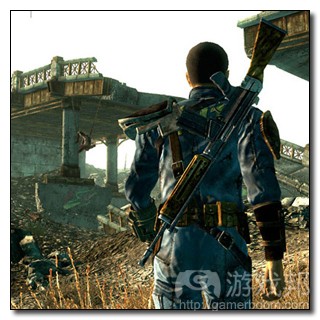
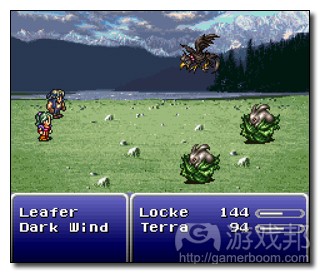


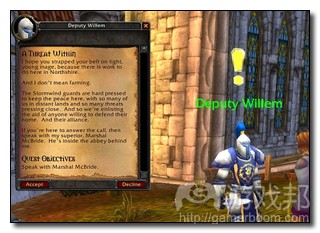
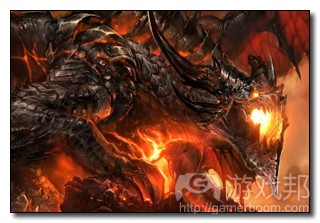

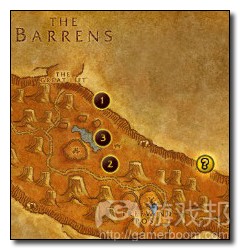


















 闽公网安备35020302001549号
闽公网安备35020302001549号